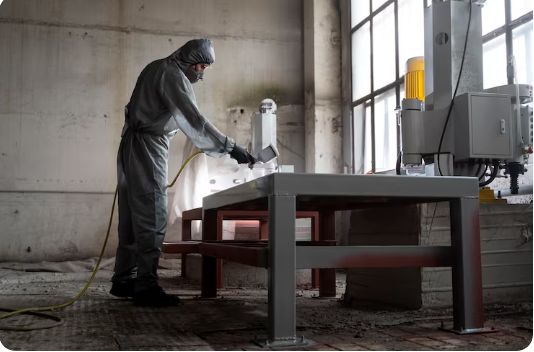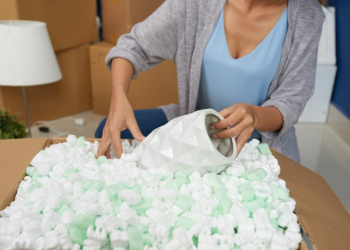Whether it’s cleaning, smoothing, or coating a material, the quality of the surface determines the durability and performance of the final finish. Two of the most effective methods for this purpose are abrasive blasting and wet blasting. Both techniques are widely used across industries to remove rust, paint, and contaminants, creating smooth, clean surfaces ready for further treatment or finishing.
Understanding Abrasive Blasting
Abrasive blasting, often known as sandblasting, involves propelling abrasive materials such as sand, garnet, steel grit, or glass beads at high speed onto a surface. This process removes unwanted coatings, corrosion, and surface impurities with remarkable efficiency.
The versatility of abrasive blasting makes it suitable for a range of materials including metal, concrete, stone, and wood. It is commonly used in industries such as automotive restoration, shipbuilding, construction, and metal fabrication. Whether preparing steel beams for painting or cleaning old machinery, abrasive blasting ensures surfaces are perfectly prepped for the next stage of production.
The Benefits of Abrasive Blasting
The main advantage of abrasive blasting is its speed and precision. It can clean and prepare large areas quickly while achieving a consistent surface finish. It also enhances coating adhesion, ensuring that paint, powder coatings, or protective films bond effectively and last longer.
This technique is particularly valuable in industries where corrosion resistance and surface integrity are critical. For example, in marine applications, abrasive blasting is essential before applying anti-corrosive coatings on ship hulls and offshore structures.
Different Media for Different Finishes
The type of abrasive material used determines the finish achieved. Hard abrasives like aluminium oxide and steel grit remove heavy rust and paint, while softer materials like glass beads or walnut shells provide gentle cleaning without damaging the substrate.
Operators can customise pressure levels and media types depending on the project requirements, making abrasive blasting one of the most adaptable surface preparation methods available.
Introduction to Wet Blasting
While abrasive blasting uses dry particles, wet blasting combines abrasive media with water to create a cleaner, smoother process. The water acts as a lubricant and dust suppressant, reducing friction and heat generation. This results in a more refined finish and eliminates airborne dust — making it safer for operators and the environment.
Wet blasting is ideal for applications that require precision and cleanliness, such as aerospace components, automotive parts, and delicate metal restoration. It provides a satin-like surface finish without causing dimensional changes to the material.
Advantages of Wet Blasting
The use of water in wet blasting offers several key benefits. It reduces the risk of surface contamination and overheating, which can be a concern in traditional dry blasting. The absence of dust also makes it suitable for indoor use and sensitive environments where air quality is important.
This method leaves a smooth, polished surface that’s perfect for subsequent coating, plating, or bonding. Additionally, because the process is gentler, it preserves the integrity of softer materials that might be damaged by dry abrasive methods.
Comparing Abrasive and Wet Blasting
Both abrasive and wet blasting deliver effective surface preparation, but the choice depends on the specific requirements of the project. Abrasive blasting is best suited for heavy-duty applications where aggressive material removal is needed, such as stripping paint, rust, or scale from large metal structures.
Wet blasting, on the other hand, is preferred when a finer finish is required or when dust suppression is a priority. It’s often used in industries that demand precision, such as aerospace, medical device manufacturing, and automotive refinishing.
Applications Across Industries
In industrial maintenance, abrasive blasting restores old equipment, pipelines, and tanks to like-new condition. Construction companies use it to prepare concrete surfaces before applying sealants or coatings. Automotive workshops rely on it to clean engine parts and restore vehicle frames.
Wet blasting finds its place in restoring classic car components, polishing aluminium or stainless steel, and cleaning precision tools. It’s also widely used in food processing and pharmaceutical industries due to its ability to clean surfaces without leaving residues.
Safety and Environmental Considerations
Safety is a top priority in surface preparation. Modern blasting systems are designed with dust collectors, protective enclosures, and operator safety gear to reduce exposure to hazardous particles. Wet blasting naturally minimises airborne dust, making it an environmentally friendly alternative.
Recycling of abrasive media and proper disposal of waste also contribute to sustainable operations. Many facilities now use eco-friendly blasting media such as recycled glass or garnet to reduce environmental impact.
Choosing the Right Service Provider
Selecting the right professional for abrasive or wet blasting ensures high-quality results. Experienced operators understand the correct pressure levels, media types, and equipment settings for different surfaces.
Reputable providers also follow strict environmental and safety standards, ensuring compliance with industry regulations. Partnering with a skilled team guarantees clean, even finishes and efficient turnaround times for all types of projects.
Conclusion
Both abrasive blasting and wet blasting are powerful, reliable techniques for achieving high-quality surface preparation. While abrasive blasting excels in removing heavy coatings and corrosion, wet blasting offers a cleaner, more refined solution for precision work.
By choosing the right method and working with experienced professionals, industries can ensure surfaces are perfectly prepared for painting, coating, or restoration — resulting in superior finishes, extended product life, and long-term performance.









